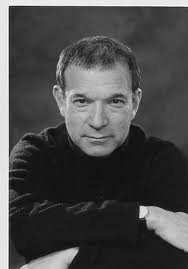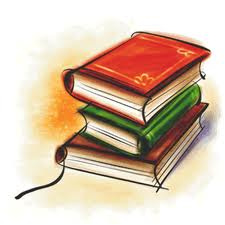New Historicism
New Historicism:
Seeks to read literature in its social context. Literature shapes and is shaped by society, so each literary text should be considered not as an isolated unity but as a force within a culture. New Historicist are interested not only what a literary text means but in what it does (Cowles 4). Also referred to as the Culture of Poetics. Tot
History of New Historicism:
New Historicism is a term in-voked by Stephen Greenblatt to characterize a group of historically oriented essays he edited on the English Renaissance in 1982 ( The German Quarterly
Vol. 62, No. 2, Theme: Germanistik as German Studies Interdisciplinary Theories and Methods (Spring, 1989), pp. 210-219 Published by: Blackwell Publishing on behalf of the American Association of Teachers of German http://www.jstor.org/stable/407373). Tot
Since the 1980's New Historicism has offered new premises for the study of history and literature. Traditional historical critisism posits starightfoward relationships between events and texts. Ideas that were conjured after the structuralist theory led to a complete reevaluation of the role of literature in history (Cowles 54). Can be compared to Foucalt's ideas of history and to Marxism theory (Cowles 130). Tot
New Historicism, argues for the contextuality of all human thought and activities. It claims no non historical vantage point for judging such thought or activity. Instead there are changing concepts of value peculiar to separate societies. This tradition originatedin nineteenth-century Germany and is closely related to the anthropological concept of cultural relativism (The History Teacher
Vol. 25, No. 3 (May, 1992), pp. 355-366 Published by: Society for History Education http://www.jstor.org/stable/494247). Tot
Stephen Greenblatt:
Greenblatt was born in Boston and raised in Cambridge, Massachusetts. After graduating from Newton High School, he was educated at Yale University (B.A. 1964, M.Phil 1968, Ph.D. 1969 and Pembroke College, Cambridge (B.A. 1966, M.A. 1968). Greenblatt has since taught at University of California, Berkeley and Harvard University. He was Class of 1932 Professor at Berkeley (he became a full professor in 1980) and taught there for 28 years before taking a position at Harvard University where in 1997 Greenblatt became the Harry Levin Professor of Literature; he was named John Cogan University Professor of the Humanities in 2000. As a visiting professor and lecturer, Greenblatt has taught at such institutions as the universities of Berlin, the University of Florence, Kyoto University, the University of Oxford and Peking University. He is a fellow of the American Academy of Arts and Sciences and has been president of the Modern Language Association. Greenblatt was "a key figure in the shift from literary to cultural poetics and from textual to contextual interpretation in U.S. English departments in the 1980s and 1990s" (Leitch 2250).
Click here to edit.
Critical Assumptions
- All history is subjective. In interpreting historical facts or identifying historical contexts, the commentator actually expresses his or her own beliefs, habits of thought, or biases.
- The attempt of traditional historical criticism to identify a unified worldview of a society or period is a reductive illusion. Culture is a web of conflicting discourses that cannot be simplified into a single point-of-view or linear set of idea(l)s.
- Literature is only one of many historical discourses contributing to the definition of a culture. As such it dramatizes "culture in action." As much as politics or military campaigns, literature dramatizes a battleground of competing ideas and values within a culture. Directly or indirectly, the literary text contains a variety of voices with which the critical reader and must discourse to find meaning.
- Thus, the historical commentator of literature does not reveal the objective meaning or absolute truth of a text but only participates in an historical discourse that often reveals as much about the commentator as about the text. (Kerri)
Critical Strategies
- In order to assess the significance of a literary text, the critical reader begins by describing the complex web of attitudes, values, ideals, and points-of-view in the literary text that comprise its expression of the poetics of culture, the episteme of that historical moment.
- In describing this cultural colloquy, the critic must consider how the circumstances of the writer's life may influence the discourses contained within the text.
- The critical reader must highlight the social rules, codes, or mores articulated within the text.
- The critical reader must also acknowledge his own predispositions and cultural biases while exploring how the multiple voices within a text are balanced, reconciled or subverted. (Kerri)
(Tot).
Paragraph.
Movies that Could be Considered as New Historicist (Kerri)
Annotated Bibliography (Kerri)
Due to the fact that the Annotated Bib. is a large document, the worked cited page is the only information given.
Farrell, Frank B. Why Does Literature Matter? New York: Cornell University Press, 2004.
Fish, Dr. Tom. New Historicism. 1999. 7 November 2010
<http://english.ucumberlands.edu/litcritweb/theory/newhistoricism.htm>.
Goddard, Harold. The Meaning of Shakespeare. Chicago: University of Chicago Press, 1951.
Greenblatt, Stephen. Shakespearean Negotiations:The Circulation of Social Energy in
Renaissance England. Los Angeles: The Regents of the University of California, 1988.
Hoover, Dwight W. "The New Historicism." The History Teacher 25.3 (1992): 355-366.
Kaes, Anton. "New Historicism and the Study of German Literature."
The German Quarterly 62.2 (1989): 210-219.
Morris, Wesley. Toward a New Historicism. Princeton: Princeton University Press, 1972.
Myers, D.G. The New Historicism in Literary Study. 1988-89. 8 November 2010
<http://www-english.tamu.edu/pers/fac/myers/historicism.html>.
New Historicism & Cultural Materialism. 11 November 2007. 6 November 2010
<http://www.cultmatnewhist.blogspot.com/>.
Pieters, Jurgen. Past, Present, and Future: New Historicism versus Cultural Materialism. 2000.
7 November 2010 <http://pmc.iath.virginia.edu/text-only/issue.100/10.2.r_pieters.txt>.
Porter, Joseph, ed. Critical Essays on Romeo and Juliet. New York: Simon & Schuster, 1997.
Raysor, Thomas Middleton, ed. Coleridge's Shakespearean Criticism. Cambridge, 1930.
Rowse, A.L. William Shakespeare: A Biography. New York: Harper & Row, 1963.
Stephens, Mitchell. Profile of Stephen Greenblatt. 1 March 1992.
6 November 2010 <http://www.nyu.edu/classes/stephens/Greenblatt%20page.htm>.
Farrell, Frank B. Why Does Literature Matter? New York: Cornell University Press, 2004.
Fish, Dr. Tom. New Historicism. 1999. 7 November 2010
<http://english.ucumberlands.edu/litcritweb/theory/newhistoricism.htm>.
Goddard, Harold. The Meaning of Shakespeare. Chicago: University of Chicago Press, 1951.
Greenblatt, Stephen. Shakespearean Negotiations:The Circulation of Social Energy in
Renaissance England. Los Angeles: The Regents of the University of California, 1988.
Hoover, Dwight W. "The New Historicism." The History Teacher 25.3 (1992): 355-366.
Kaes, Anton. "New Historicism and the Study of German Literature."
The German Quarterly 62.2 (1989): 210-219.
Morris, Wesley. Toward a New Historicism. Princeton: Princeton University Press, 1972.
Myers, D.G. The New Historicism in Literary Study. 1988-89. 8 November 2010
<http://www-english.tamu.edu/pers/fac/myers/historicism.html>.
New Historicism & Cultural Materialism. 11 November 2007. 6 November 2010
<http://www.cultmatnewhist.blogspot.com/>.
Pieters, Jurgen. Past, Present, and Future: New Historicism versus Cultural Materialism. 2000.
7 November 2010 <http://pmc.iath.virginia.edu/text-only/issue.100/10.2.r_pieters.txt>.
Porter, Joseph, ed. Critical Essays on Romeo and Juliet. New York: Simon & Schuster, 1997.
Raysor, Thomas Middleton, ed. Coleridge's Shakespearean Criticism. Cambridge, 1930.
Rowse, A.L. William Shakespeare: A Biography. New York: Harper & Row, 1963.
Stephens, Mitchell. Profile of Stephen Greenblatt. 1 March 1992.
6 November 2010 <http://www.nyu.edu/classes/stephens/Greenblatt%20page.htm>.
Critical Reading of New Historicism:
http://www.jstor.org/stable/pdfplus/2505620.pdf?acceptTC=true
By clicking on this link, you will find a critical reading of New Historicism. Tot
This article critiques Greenblatts theory of New Historicism. It argues that New Historicism a is a powerful theory, not because of its innovative approach to literature but because of its interprative practice as a hermeneutics. Hermeneutics is the study of interpretation theory. (Tot)
Reading Questions:
1. Who was the founder of New Historicism?
2. What is another common name used interchangably with New Historicism
3. When was New Historicism created? (what year/century)?
4. What theories can New Historicism be compared to?
5. Explain in your own words, what New Historicism theory is. (Tot)
Website Recommendation:
* http://www.kristisiegel.com/theory.htm
*http://www.cla.purdue.edu/academic/engl/theory/newhistoricism/modules/introduction.html
* http://bcs.bedfordstmartins.com/virtualit/poetry/critical_define/crit_newhist.html
* http://www2.cnr.edu/home/bmcmanus/newhistoricism.html
lick here to edit.


